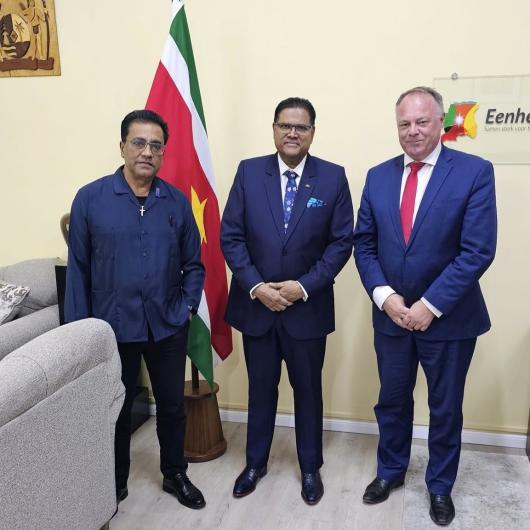
By: our Africa representative
Even though CCI was occupied during the 3rd quarter with the preparation of a lobby session against the EU-ACP Treaty within a planned Pan-African Parliament (PAP) meeting in Uganda, the PAP meeting itself was postponed indefinitely due to unforeseen events.
After years of stalemate within the EU, Poland and Hungary finally agreed last July after indemnifications for them, resulting in EU unanimity.
Since the signing ceremony of the EU-ACP Treaty was planned for 15 November quite suddenly in Samoa (Pacific), CCI increased it's focus on awareness raising to convince countries to not sign the Treaty. One of the activities that was supported by CCI was a press conference given in Nigeria (who does not sign the treaty) to inform the decision makers and the general public about the dangerous clauses inside the Treaty. Another example was that CCI was a keynote speaker for the online Conference of the African Christian Professionals Forum (ACPF) where Henk Jan was able to lobby influential professionals from different African countries to inform their governments to not sign the Treaty.
After the signing ceremony of the Treaty took place, the word came out that 35 out of 79 ACP countries had not signed. However, because the EU and the OACPS Secretariat (an EU-funded representative of the ACP countries in this Treaty) severely pressured countries to still sign, a few countries signed after 15 November as well. An overview of the countries that did not sign until now can be found in the table below: 18 from the 48 African countries, 8 from the 16 Caribbean countries, and 5 from the 15 countries. The countries highlighted in yellow are the countries that were closely working with CCI to lobby against the Treaty.

Henk Jan met with the Suriname President and other Caribbean policy influencers
Since only half of the Caribbean countries did sign the Treaty (even in the case of Jamaica with a lot of reservations regarding SRHR), the EU and the OACPS Secretariat started to put much pressure on the remaining Caribbean countries to still sign. At the request of Trinidad & Tobago, Henk Jan therefore decided to travel to the Caribbean to support the countries that did not sign to stand firm against the pressure and to see opportunities to unsign for the countries that already did sign. According to our latest information, the EU needs two more countries to reach the required starting minimum for the Treaty to enter into force in 2024.
Henk Jan first went to the islands of Grenade and Trinidad & Tobago where he had intensive discussions with religious leaders, ministers and MPs. Trinidad has no intention of signing.
Thereafter, he fly to Suriname to meet with the Surinamese President and his spiritual advisor. Even though Suriname already signed the Treaty, Henk was able to point out the dangers of the treaty with the EU. The President was shocked as he thought it was not that bad and that he could use his Presidential powers in case any conflict of interest occurs. Henk Jan told him that the Treaty gives all the power in the hands of the EU upon which the President immediately scheduled an appointment with the responsible of Foreign Affairs who had signed the Treaty on behalf of Suriname. Henk Jan thanked the President for his time and interest, to which he replied: "We have to thank you. God has sent you. Without Him we can do nothing.” The President then asked Henk Jan to conclude the meeting with prayer, which, besides commitment, dedication and quality, is the main foundation for the work of CCI.
With the President of Suriname Chan Santokhi and his spiritual advisor